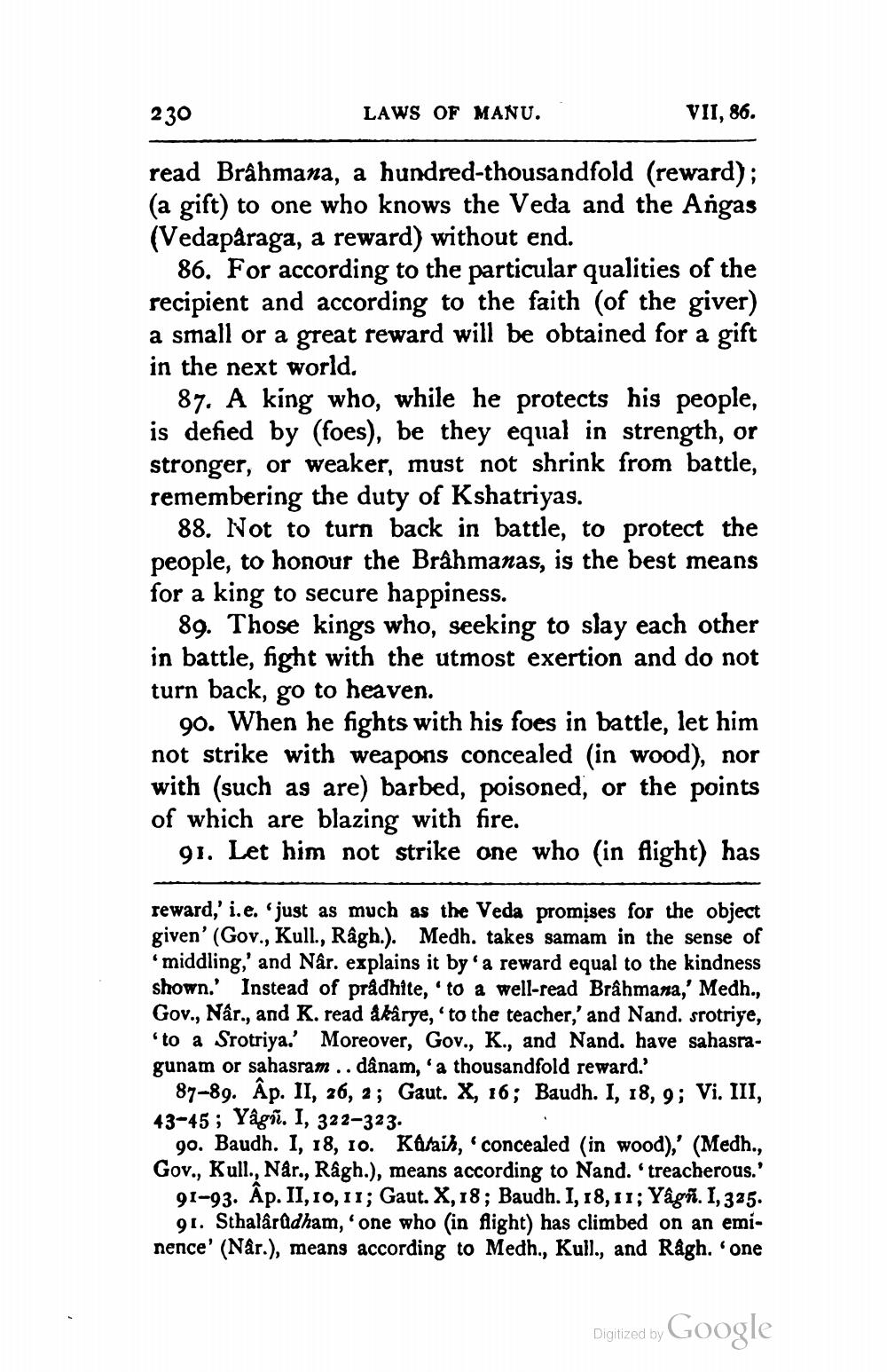________________
230
LAWS OF MANU.
VII, 86.
read Brahmana, a hundred-thousandfold (reward); (a gift) to one who knows the Veda and the Angas (Vedapäraga, a reward) without end.
86. For according to the particular qualities of the recipient and according to the faith (of the giver) a small or a great reward will be obtained for a gift in the next world.
87. A king who, while he protects his people, is defied by (foes), be they equal in strength, or stronger, or weaker, must not shrink from battle, remembering the duty of Kshatriyas.
88. Not to turn back in battle, to protect the people, to honour the Brâhmanas, is the best means for a king to secure happiness.
89. Those kings who, seeking to slay each other in battle, fight with the utmost exertion and do not turn back, go to heaven.
90. When he fights with his foes in battle, let him not strike with weapons concealed (in wood), nor with (such as are) barbed, poisoned, or the points of which are blazing with fire.
91. Let him not strike one who (in flight) has
reward,' i.e. just as much as the Veda promises for the object given' (Gov., Kull., Râgh.). Medh. takes samam in the sense of "middling,' and Når. explains it by a reward equal to the kindness shown. Instead of pradhite, to a well-read Brâhmana,' Medh., Gov., Når., and K. read & kârye,' to the teacher,' and Nand. srotriye,
to a Srotriya. Moreover, Gov., K., and Nand. have sahasragunam or sahasram.. dânam,'a thousandfold reward.'
87-89. Ap. II, 26, 2; Gaut. X, 16; Baudh. I, 18, 9; Vi. III, 43-45; Yåga. I, 322-323.
go. Baudh. I, 18, 10. Katih, concealed (in wood),' (Medh., Gov., Kull., Nár., Ragh.), means according to Nand. treacherous.'
91-93. Ap. II, 10,11; Gaut. X, 18; Baudh. I, 18,11; Yagn. I, 325.
91. Sthalârûdham, one who in Alight) has climbed on an eminence' (Når.), means according to Medh., Kull., and Rågh. one
Digitized by Google




